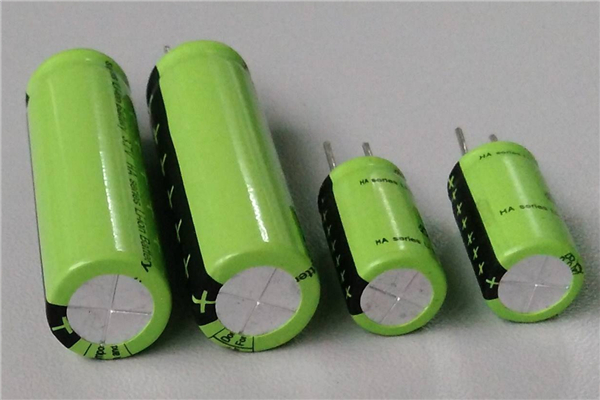Lithium Ion Car Battery Life Expectancy
Oct 11, 2019 Pageview:6469
Introduction
Battery chemistry has come a long way since in 1800 when Alessandro Volta disproved the common theory that electricity could only be created by living beings. Today, we have lithium ion battery technology which is used in many devices all over the world. In almost every household, there is a lithium-ion battery. These batteries are now being in electric vehicles. Lithium-ion car battery stores incredible amounts of energy that can be discharged quickly, safely and smoothly. That is actually what gives electric vehicles, also known as EVs instant acceleration, responsive handling and fast recharging times.
Most electric vehicle batteries are lithium-based which may be comprised of a mix of cobalt, manganese, nickel, and graphite as well as other primary components. Some of these materials are rare and harder to find than others, however, none should be classified as “rare earth materials.”
Electric vehicle batteries are new enough to wonder, long they will last? When a lithium battery is charged and discharged once, it is called a cycle. Lithium-ion battery capacity degrades as the number of cycles increases. Battery life is measured in cycles. The industry standard of cycles is set at 80% capacity and is often used as a benchmark. Read on to discover more about the lithium-ion car battery life expectancy.
What is the life expectancy of a lithium ion battery?
The life expectancy of a lithium ion battery is one of the biggest worries potential buyers have when considering an electric car. Apart from range, there is always the fear of running out or power mid-journey, something that is referred to as range anxiety. How an electric car’s battery might degrade overtime is usually described as a big barrier to electric car ownership.
Like any other lithium-ion battery like the one on your laptop or mobile phone, the batteries in electric cars will lose some of their capacity over an extended period of use. There are reasons why this happens and there are things you can do to keep your electric car battery in condition for longer.
The life expectancy of an electric car lithium ion battery may depend on the mileage of the vehicle. There may not be an exact or specific answer to the question regarding the life expectancy of a lithium ion battery but depending on how you treat and use the battery, the longer it will last. Additionally, when degradation occurs, the vehicle will still be usable, you will just have to replace the battery with a new one.
The advanced lithium batteries in electric vehicles are designed to last long but will wear out eventually. Currently, you will see most manufacturers offering 8-year/100,000-mile warranties for their batteries. For instance, Nissan is providing additional battery capacity loss coverage for 5 years or 60,000 miles.
What shortens lithium battery life?
There are several things that shorten the life of a lithium battery. Let’s look at them:
1.Overcharging or high voltage:when a lithium battery is charging, its voltage goes up slowly. When it reaches full charge, the battery voltage is at its highest and it will not go up much more. The maximum voltage varies with lithium cell chemistry. When overcharged, the voltage can exceed the maximum cell voltage and this ruins the battery life.?
2.High temperatures:using your battery in high temperatures can reduce the lifespan of your lithium battery. High temperatures can lead to overheating which can cause damage to the battery, a fire or even an explosion. Today, batteries come with battery management systems (BMS) which are used to control charging voltage thus the maximum voltage and temperature are never exceeded.?
3.Deep discharge or too low voltage:deep discharge or too low voltage can significantly reduce the cycle life of your lithium battery. The charge level in batteries is described in two ways. The first description is called a state of charge (SoC), whereby if a cell is fully charged, it is said to be at 100% SoC. The other description is the depth of discharge (DoD), whereby if a cell is fully discharged, it is said to be at 100% DoD. 100% DoD will greatly reduce the battery life cycle. Therefore, for maximum battery cycle life, deep discharge must be avoided.?
4.High discharges or charge current:batteries are characterized by C rates. The C rate is defined in units of C, where 1C means the battery can be charged in one hour. If the battery is charged at 2C, then it means that the battery may be charged in half an hour. High C rate batteries can be charged or discharge very fast and produce a lot of power. Those with a low C rate have lower power. If the C rate on the lithium battery is exceeded, it leads to changes in the anode that degrade performance.?
How often do batteries need to be replaced in an electric car?
A battery can be defined as the heart of your electric vehicle. It defines how far you can go and how long it will take to recharge. Potential buyers of electric vehicles wonder, how often batteries need to be replaced in an electric car.
As with all batteries, lithium-ion batteries have a finite lifespan. They lose capacity with every full charge or discharge, or simply with every full cycle. The more cycles the battery undergoes, the more its capacity degrades. This results in the eventual reduction of the car’s range.
However, that doesn’t mean that after a year or so, your lithium battery’s performance and range will drop noticeably. The drop is gradual and slow. It is extremely unlikely that you will replace your battery after five years of use. The battery can last at least 10 years even up to 20 years before needing replacement.
Mostly, it’s unlikely that an electric car’s lithium battery will degrade to the point it needs replacing. According to Nissan, they have only ever had to replace a handful of Nissan Leaf batteries, despite there being thousands of models on the road.
You need to note that unless you mistreat your battery, you’re likely to get 100,000 miles at the very least from it, and even much more.
Should your batteries require replacing, how you bought the car will influence what you will need to do. If you bought the car and battery together, you may have to buy a new battery. The cost of the battery varies depending on the type and size of the battery. If you bought the car and hired the battery, the battery will be replaced or repaired free of charge.
How do you take care of lithium ion car battery life?
There are a few measures you can take to take care of lithium-ion car battery life.
Avoid overcharging:To get maximum battery cycle life, overcharging must be avoided. Overcharging can cause chemical changes inside the battery itself which can negatively affect how efficiently it can store energy.?
Avoid deep discharging:discharging an electric car battery to empty isn’t a good idea. Lithium-ion batteries perform optimally when they are between 50% and 80% of capacity.?
Avoid extreme temperatures:extreme cold or heat can negatively affect your car’s battery thus the ranger you can travel. To extend battery life, using batteries in extreme temperatures must be avoided.?
Avoid high discharge or charge current:the C rate on the lithium battery should not be exceeded as it results in anode changes that degrade performance. A proper electrode operation depends on the electrode surface structure. The structure can change if the C rate is exceeded.?
Conclusion
The lithium-ion car battery life expectancy depends on how you treat your battery. You should not subject your battery to high temperatures, overcharging it, deep discharge or high discharge or charge current all these can significantly affect the operation of the battery and thus its lifespan. Electric vehicle batteries are becoming more affordable, durable and backed up by manufacturers warranties, thus the barriers to electric car ownership are bound to start fading.
- Prev Article: How to Care For Lithium Batteries
- Next Article: AA Batteries as Substitute to 18650
Leave Message
Hottest Categories
-
Hottest Industry News
-
Latest Industry News











